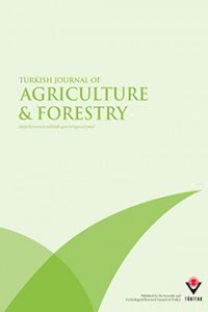Durability test on an agricultural tractor engine fuelled with pure biodiesel (B100)
The performance of a 118-kW tractor fuelled by pure biodiesel was monitored during a long-term field experiment with approximately 800 h of engine function. The objective was to demonstrate that B100, a pure biodiesel fuel, is a viable alternative to traditional diesel oil in terms of long-term mechanical reliability. A bench test on the new engine, performed by attaching a test stand to the power take-off of the tractor, showed an expected reduction in power (-9%) and torque (-7%) and an increase in specific consumption (+13%) when biodiesel was used as a complete substitute to diesel oil. Furthermore, with the same setup, the exhaust gas had a Bosch smoke index equal to 50% of the value for the same engine fuelled with diesel oil. After these initial tests, the tractor was set up for normal field operations, in which both the engine curves and lubricant quality were periodically monitored. These surveys indicated no significant reduction in engine performance; however, the lubricant was consequently diluted and contaminated by biodiesel, which caused the lubricant properties to considerably worsen. However, on the basis of the chemical-physical analysis, reducing the oil change interval from 200 h (manufacturer's indications for the engine when operating with diesel oil) to 100 h would compensate for this progressive quality decline. At the end of the trials, the engine was disassembled to check the condition of its components; wear and lacquer-like coating phenomena were observed, and their levels were acceptable. The obtained results demonstrated that B100 can effectively substitute for diesel oil in a standard compression-ignition engine: the power change is not perceptible during normal operation of a tractor, and no particular problem will arise in the engine during its life if the lubricant is changed every 100 h.
Anahtar Kelimeler:
Key words: Agricultural tractor, B100, biodiesel, diesel engine, durability tests, engine performance
Durability test on an agricultural tractor engine fuelled with pure biodiesel (B100)
The performance of a 118-kW tractor fuelled by pure biodiesel was monitored during a long-term field experiment with approximately 800 h of engine function. The objective was to demonstrate that B100, a pure biodiesel fuel, is a viable alternative to traditional diesel oil in terms of long-term mechanical reliability. A bench test on the new engine, performed by attaching a test stand to the power take-off of the tractor, showed an expected reduction in power (-9%) and torque (-7%) and an increase in specific consumption (+13%) when biodiesel was used as a complete substitute to diesel oil. Furthermore, with the same setup, the exhaust gas had a Bosch smoke index equal to 50% of the value for the same engine fuelled with diesel oil. After these initial tests, the tractor was set up for normal field operations, in which both the engine curves and lubricant quality were periodically monitored. These surveys indicated no significant reduction in engine performance; however, the lubricant was consequently diluted and contaminated by biodiesel, which caused the lubricant properties to considerably worsen. However, on the basis of the chemical-physical analysis, reducing the oil change interval from 200 h (manufacturer's indications for the engine when operating with diesel oil) to 100 h would compensate for this progressive quality decline. At the end of the trials, the engine was disassembled to check the condition of its components; wear and lacquer-like coating phenomena were observed, and their levels were acceptable. The obtained results demonstrated that B100 can effectively substitute for diesel oil in a standard compression-ignition engine: the power change is not perceptible during normal operation of a tractor, and no particular problem will arise in the engine during its life if the lubricant is changed every 100 h.
Keywords:
Key words: Agricultural tractor, B100, biodiesel, diesel engine, durability tests, engine performance,
___
- Ahmadi I (2013). Development of a tractor dynamic stability index calculator utilizing some tractor specifications. Turk J Agric For 37: 203–211.
- Alptekin E, Canakci M (2008). Determination of the density and the viscosities of biodiesel–diesel fuel blends. Renew Energ 33: 2623–2630.
- Altun S (2011). Performance and exhaust emissions of a DI diesel engine fueled with waste cooking oil and inedible animal tallow methyl esters. Turk J Eng Env Sci 35: 107–114.
- Aybek A, Başer E, Arslan S, Üçgül M (2011). Determination of the effect of biodiesel use on power take-off performance characteristics of an agricultural tractor in a test laboratory. Turk J Agric For 35: 103–113.
- Aydin H, Bayindir H (2010). Performance and emission analysis of cottonseed oil methyl ester in a diesel engine. Renew Energ 35: 588–592.
- Barnwal BK, Sharma MP (2005). Prospects of biodiesel production from vegetable oils in India. Renew Sust Energ Rev 9: 363–378.
- Bhale PV, Deshpande NV, Thombre SB (2009). Improving the low temperature properties of biodiesel fuel. Renew Energ 34: 794–800.
- Bietresato M, Friso D, Sartori L (2012). Assessment of the efficiency of tractor transmissions using acceleration tests. Biosyst Eng 112: 171–180.
- Bozbas K (2008). Biodiesel as an alternative motor fuel: production and policies in the European Union. Renew Sust Energ Rev 12: 542–552.
- Chase CL, Peterson CL, Lowe GA, Mann P, Smith JA, Kado NY (2000). A 322,000 kilometer (200,000 mile) over the road test with HySEE biodiesel in a heavy duty truck. SAE Technical Paper 2000-01-2647.
- ISSN: 1300-011X
- Yayın Aralığı: Yılda 6 Sayı
- Yayıncı: TÜBİTAK
Sayıdaki Diğer Makaleler
Ayhan TOPUZ, Cüneyt DİNÇER, Mehmet TORUN, İsmail TONTUL
Javane OKTAEE, Ghanbar EBRAHIMI, Mohammad LAYEGHI, Mohammad GHOFRANI, Carl Albert ECKELMAN
Ayfer ALKAN TORUN, Yıldız AKA KAÇAR, Belgin BİÇEN, Nazife ERDEM, Sedat SERÇE
David MYCOCK, Maria Paula WATT, Muhammad NAKHOODA
Otakar ROP, Sezai ERCİŞLİ, Jiri MLCEK, Tunde JURIKOVA, İgnac HOZA
Jun HUANG, Juan ZHANG, Daoze WANG, Lili ZHANG, Yijuan XU, Mingjiang LI
Durability test on an agricultural tractor engine fuelled with pure biodiesel (B100)
Lili ZHANG, Yijuan XU, Juan ZHANG, Daoze WANG, Jun HUANG, Mingjiang LI
